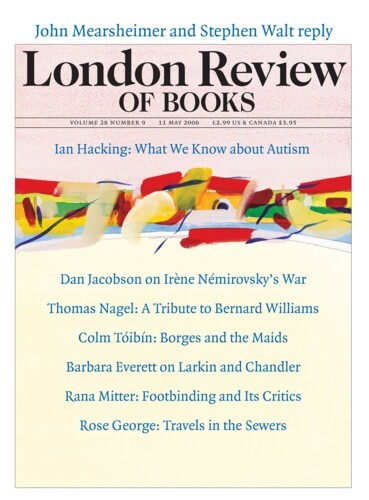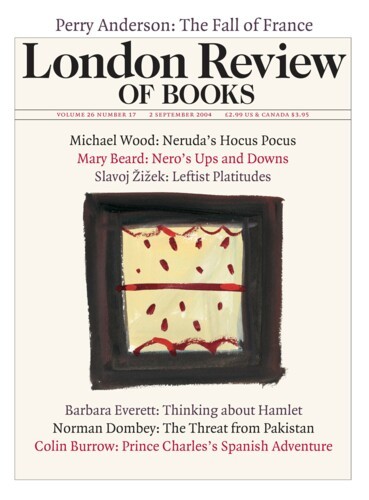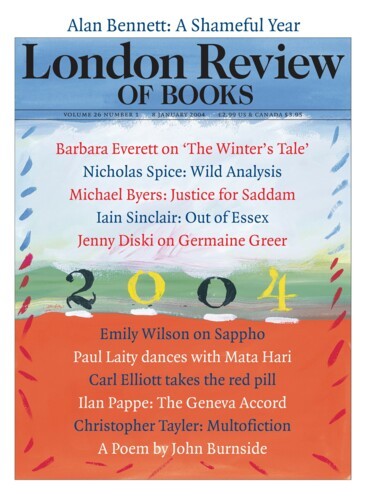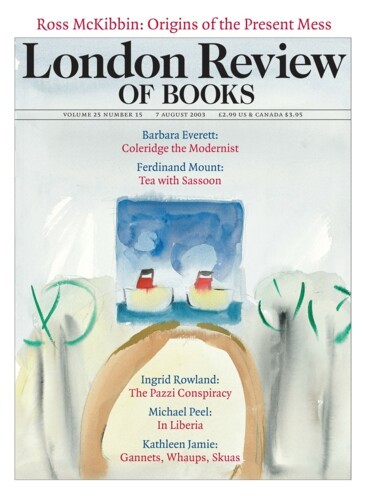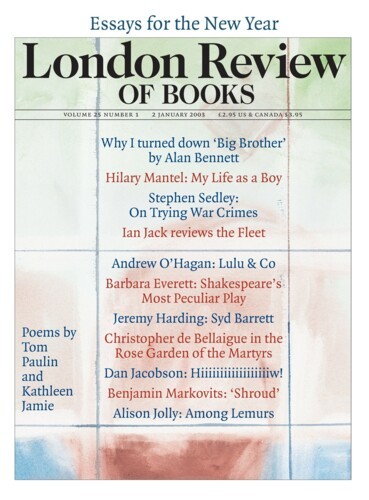A Lethal Fall: Larkin and Chandler
Barbara Everett, 11 May 2006
Philip Larkin gave the name High Windows to what proved to be his last collection of verse (published in 1974, 11 years before he died). The phrase had been used as the title of one of the poems included, and also occurs at the poem’s end:
the thought of high windows: The sun-comprehending glass, And beyond it, the deep blue air, that shows Nothing, and is nowhere, and is endless.
...
